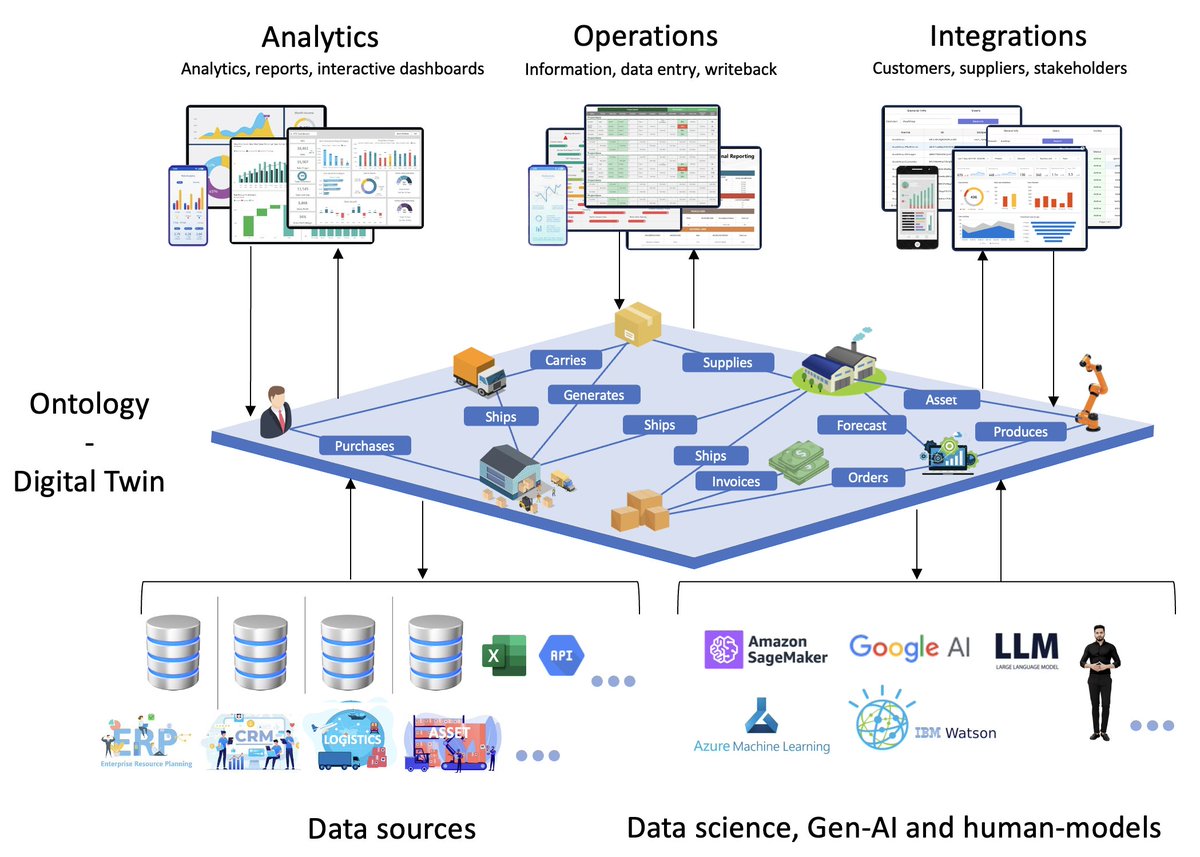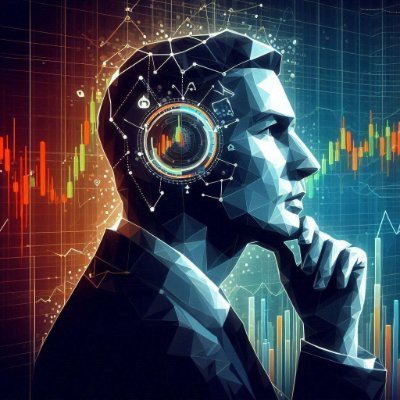$PLTR valuation makes ZERO sense
But then why do institutions keep buying it?
What do they know that you don't?
I work in BIG DATA analytics and let me share the secrets of Palantir in the most basic way
Palantir has monopoly on Automated Governance, serving as the ultimate Operating System for Data and Global Decision-Making. The world is starting to see the massive benefits of AI agents developed on the Palantir platform, which boost efficiency, drive higher earnings, and outpace the competition. Over time, Palantir will reign supreme among AI agents, with all other AI entities eventually integrating into the powerful Palantir Ecosystem. This is just the beginning.
Think of $MSFT Windows. Before Windows, people relied on MS-DOS (which is another OS) and before that it was CP/M which were really bad Operating Systems. The Tools didn't talk to each other. You couldn't multitask. You couldn't perform Technical Analysis while at the same time executing the trades. You couldn't stream your games on Youtube while playing it. It was limited and fragmented into separate sessions and executable files (.exe). You were LIMITED, much less efficient.
It is exactly the same for all Governments and Corporations right now. They've grown so big, beyond scalability. Tons of data are being generated by too many programs, locations, and departments. Each source of data has different expertise of people with totally separated ownerships and power over the data (e.g. Business Dept. vs Manufacturing Dept).
Just like it was inefficient or impossible for MS-DOS to transfer data from one application to another in real time. It is inefficient to transfer the data from one department to another for a simple decision-making. It takes so much time, resources, and too many meetings. It could take days if not weeks to get it done. Why? Because of ownership and qualifications over the data. If you don't work in the Business department then you don't qualify to play with that data. If you don't work in the manufacturing department, you can't own the data. So in order to unify the two data sources, you are reliant on different groups. That's only one small example.
Think of your responsibilities in your own household. One partner is probably more accurate in handling the grocery list and school events while the other is more reliable in fixing cars and backyards. As a 3rd person (perhaps an accountant), you would be reliant on each of them to provide the receipts for their own spendings.
This is where Palantir's Ontology kicks in. Voila, it unifies every single data source and specialties within the company.
Think of Palantir's Ontology as a digital map for a company's data. It organizes all the information in a way that makes sense, connecting different pieces of data to each other and to real-world things, like products, equipment, or customer orders.
Imagine you have a messy room with all your stuff scattered around. The Ontology is like a system that helps you organize everything neatly, so you can find what you need quickly and easily. It's a way to make sense of a lot of data and use it effectively.
Palantir solves scalability and reduces big corporations and governments down to its core principles, to make a good decision. With Palantir, it is much easier to grow, digitally.
“There were 5 exabytes of information created between the dawn of civilization through 2003, but that much information is now created every two days.” — Eric Schmidt
“Information is the oil of the 21st century, and analytics is the combustion engine.” — Peter Sondergaard
“Without big data, you are blind and deaf and in the middle of a freeway.” — Geoffrey Moore
Companies don't like to be blind and deaf in the middle of a freeway nor to be underperforming to be punished by the stock market. Eventually, all the data we generate will be more complex and too much for humans to digest them all. We will eventually need an AI to do that job for us but more importantly, we need a stable platform for AI agents to stand on; you can't throw an AI agent in the water and expect it to swim. AIs need..
ONTOLOGY.
Think of AI agents as Culinary Chefs. The Palantir AI chefs will have all the ingredients and tools in ONE COMMON PLACE to make magic happen, enabling on-the-fly decision-making without the hindrances of bureaucracy or data ownership issues. This unity is the game-changer. Palantir is...
A Super Integration Company
And that is vastly more superior and transformative than the hype of 'AI'. You can hire the best Chef in the world but without fresh ingredients and tools, he will never be effective. So that's why it's not just about AI agents, it's more about what's available to them, a unified kitchen full of many ingredients, recipes, assistants, and tools.
PALANTIR ONTOLOGY is precisely that Kitchen, an Operating System of Data and Global Decision-Making.
Just like how $MSFT has become essential to our everyday lives, $PLTR will become essential to every single business and government in the world. It's just a matter of time. The monopoly is here to stay.
Is $PLTR valuation through the roofs? Hell Yeah, but what's the alternative? NONE.
Show original
6.97M
4.1K
The content on this page is provided by third parties. Unless otherwise stated, OKX is not the author of the cited article(s) and does not claim any copyright in the materials. The content is provided for informational purposes only and does not represent the views of OKX. It is not intended to be an endorsement of any kind and should not be considered investment advice or a solicitation to buy or sell digital assets. To the extent generative AI is utilized to provide summaries or other information, such AI generated content may be inaccurate or inconsistent. Please read the linked article for more details and information. OKX is not responsible for content hosted on third party sites. Digital asset holdings, including stablecoins and NFTs, involve a high degree of risk and can fluctuate greatly. You should carefully consider whether trading or holding digital assets is suitable for you in light of your financial condition.

